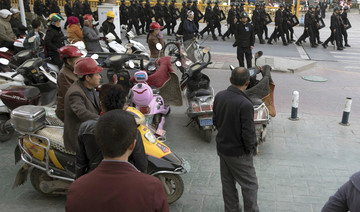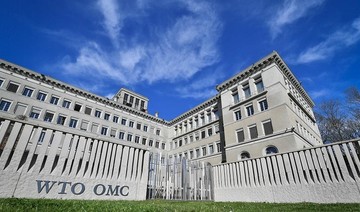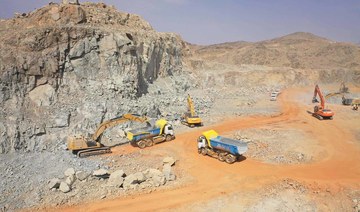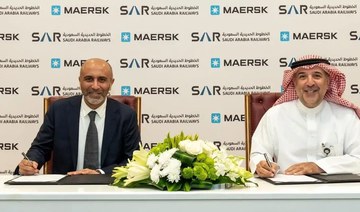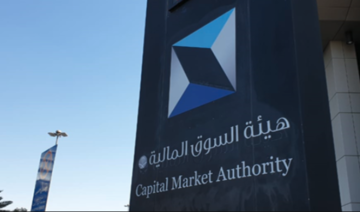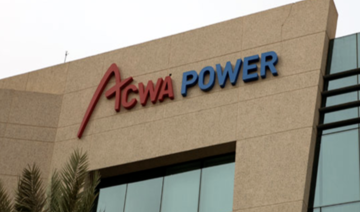BEIJING/WASHINGTON: China said on Tuesday that it has no choice but to retaliate against new US trade tariffs, raising the risk that President Donald Trump could soon impose duties on virtually all of the Chinese goods that America buys.
The commerce ministry’s statement came hours after Trump said he was imposing 10 percent tariffs on about $200 billion worth of imports from China, and threatened duties on about $267 billion more if China retaliated against the US action.
The brief statement gave no details on China’s plans, but Foreign Ministry spokesman Geng Shuang told a daily news briefing later that the US steps had brought “new uncertainty” to talks between the two countries.
“China has always emphasised that the only correct way to resolve the China-US trade issue is via talks and consultations held on an equal, sincere and mutually respectful basis. But at this time, everything the United States does does not give the impression of sincerity or goodwill,” he added.
Geng said he would not comment on “hypotheticals” such as what measures Beijing might consider apart from tariffs on US products, saying only that details would be released at the appropriate time.
Trump had warned on Monday that if China takes retaliatory action against US farmers or industries, “we will immediately pursue phase three, which is tariffs on approximately $267 billion of additional imports.”
The latest US duties spared smart watches from Apple and Fitbit and other consumer products such as baby car seats. But if the administration enacts the additional tariffs it would engulf all remaining US imports from China and Apple products like the iPhone and its competitors would not likely be spared.
Last month, China unveiled a proposed list of tariffs on $60 billion of US goods ranging from liquefied natural gas to certain types of aircraft — should Washington activate the tariffs on its $200 billion list.
China is reviewing plans to send a delegation to Washington for fresh talks in light of the US action, the South China Morning Post reported on Tuesday, citing a government source in Beijing.
Collection of tariffs on the long-anticipated US list will start on Sept. 24 but the rate will increase to 25 percent by the end of 2018, allowing US companies some time to adjust their supply chains to alternate countries.
So far, the United States has imposed tariffs on $50 billion worth of Chinese products to pressure Beijing to reduce its huge bilateral trade surplus and make sweeping changes to its trade, technology transfer and high-tech industrial subsidy policies.
Beijing has retaliated in kind, but some analysts and American businesses are concerned it could resort to other measures such as pressuring US companies operating in China.
A senior Chinese securities market official said US trade actions will not work as China has ample fiscal and monetary policy tools to cope with the impact. The government already has been ramping up spending on infrastructure.
“President Trump is a hard-hitting businessman, and he tries to put pressure on China so he can get concessions from our negotiations. I think that kind of tactic is not going to work with China,” Fang Xinghai, vice chairman of China’s securities regulator, said at a conference in the port city of Tianjin.
FURTHER TALKS IN DOUBT
Trump’s latest escalation of tariffs on China comes after several rounds of talks yielded no progress. US Treasury Secretary Steven Mnuchin last week invited top Chinese officials to fresh discussions, but thus far nothing has been scheduled.
“We have been very clear about the type of changes that need to be made, and we have given China every opportunity to treat us more fairly,” Trump said in a statement. “But, so far, China has been unwilling to change its practices.”
Fang told the Tianjin forum that he hopes the two sides can sit down and talk, but added that the latest US move has “poisoned” the atmosphere.
A senior Trump administration official told reporters that the United States was open to further talks with Beijing, but offered no immediate details on when they may occur.
“This is not an effort to constrain China, but this is an effort to work with China and say, ‘It’s time you address these unfair trade practices that we’ve identified that others have identified and that have harmed the entire trading system,’” the official said.
So far, China has either imposed or proposed tariffs on $110 billion of US goods, representing most of its imports of American products.
“Tensions in the global economic system have manifested themselves in the US-China trade war, which is now seriously disrupting global supply chains,” the European Union Chamber of Commerce in China said in a statement on Tuesday.
China’s yuan currency slipped against the dollar on Tuesday after news of the US measures. It has weakened by about 6.0 percent since mid-June, offsetting the 10 percent tariff rate by a considerable margin.
CONSUMER TECH TRIMMED
The US Trade Representative’s office eliminated 297 product categories from the latest proposed tariff list, along with some subsets of other categories.
But the adjustments did little to appease technology and retail groups who argued US consumers would feel the pain.
“President Trump’s decision...is reckless and will create lasting harm to communities across the country,” said Dean Garfield, president of the Information Technology Industry Council, which represents major tech firms.
Kenneth Jarrett, president of the American Chamber of Commerce in Shanghai, said three quarters of its members will be hit by the tariffs, and they will not bring jobs back to the United States.
“Most of our member companies are ‘in China, for China’ — selling goods to Chinese companies and consumers, not to Americans — and thus ultimately boosting the US economy,” Jarrett said.
China: Trump forces its hand, will retaliate against new US tariffs
China: Trump forces its hand, will retaliate against new US tariffs
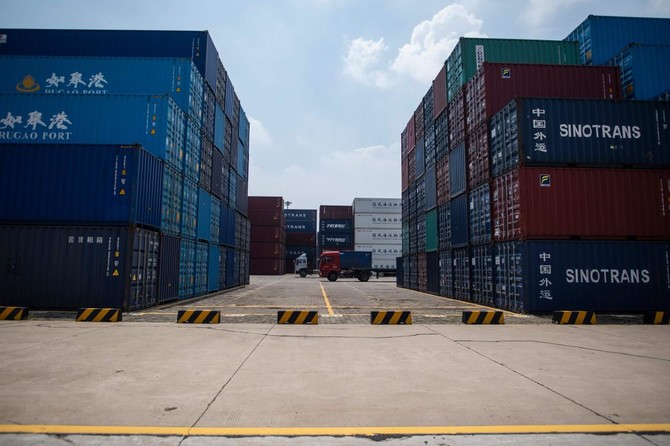
- The commerce ministry’s statement came hours after Trump said he was imposing 10 percent tariffs on about $200 billion worth of imports from China
- The latest US duties spared smart watches from Apple and Fitbit and other consumer products such as baby car seats
US car marker Lucid partners with KACST to advance EV technology in Saudi Arabia

RIYADH: US electric vehicle manufacturer Lucid Group and Saudi Arabia’s King Abdulaziz City for Science and Technology have inked a pact to boost EV technology development within the Kingdom.
As part of the deal, the California-based firm, in which Saudi Arabia’s Public Investment Fund holds a significant stake, will collaborate with KACST on joint research, utilizing the institute’s services, facilities, and products for dedicated research into advanced battery technologies and materials.
Additionally, they will conduct studies in aerodynamics, autonomous driving, and artificial intelligence technologies, according to a press release.
Faisal Sultan, vice president and managing director of Middle East, Lucid Group said: “Lucid’s goal is to inspire the adoption of sustainable energy by creating advanced technologies. This Memorandum of Understanding marks a key step towards achieving this vision, acting as a catalyst to advance and elevate the entire EV industry and inspire the adoption of sustainable transportation in support of the Kingdom’s vision for a more sustainable and diversified economy.”
The partnership between Lucid and KACST will also include research on electric vehicles, assessing their performance to ensure they are suitable for the climatic conditions in the Kingdom, the release added.
The joint research and development headquarters will be established at the national laboratories in KACST and are scheduled to launch during the third quarter of 2024.
“Using our state-of-the-art facilities, the research conducted under this project will advance electric vehicle systems and aid the development of technologies to support autonomous driving, in line with national aspirations for research, development and innovation in the energy and industry sector,” said Talal bin Ahmed Al-Sudairi, senior vice president of KACST for research and development sector.
The deal will see Lucid Group and KACST collaborating to leverage their expertise in scientific and technical research. Their joint efforts will focus on developing research programs geared toward creating technical solutions for the transportation and energy sectors, thereby bolstering the national economy.
In September 2023, Lucid opened its first plant outside the US in Saudi Arabia with an initial capacity to produce 5,000 EVs a year.
This came as the Kingdom’s government pledged to buy up to 100,000 vehicles from the company over 10 years.
Saudi Arabia open to financing up to 75% of certain industrial projects, says minister

RIYADH: Saudi Arabia is open to providing up to 75 percent of financing for certain industrial projects, a minister has revealed in a bid to incentivize foreign investment and private sector players.
During his discussion with several Qatari investors on the sidelines of the 52nd meeting of the Gulf Cooperation Council Industrial Cooperation Committee in Doha, Bandar Alkhorayef, the Kingdom’s minister of industry and mineral resources, highlighted the vast opportunities that Saudi Arabia’s untapped mining potential provides to global investors.
According to a release on X, he reaffirmed that in addition to the incentives provided by the industrial and mineral wealth system and the multiple sources of financing, the prepared infrastructure in more than 36 industrial cities around the Kingdom offers a sum of qualitative capabilities such as the production of prefabricated factories and long-term rentals.
SAR sees 9% annual growth in cargo transported
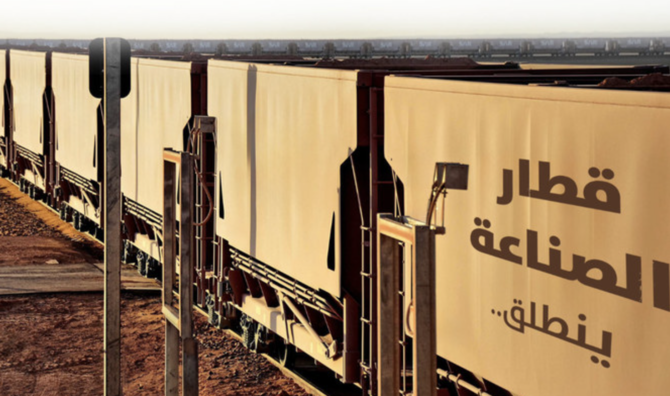
RIYADH: The volume of minerals and goods transported by Saudi Arabia Railways reached 6.34 million tonnes during the first quarter of 2024, an annual increase of 9 percent.
According to its quarterly report, SAR stated that over 2.7 million passengers utilized its services, marking a 23 percent growth compared to same period last year.
Passenger rides also increased by 3 percent, reaching a total of 8,252 trips across the East Train, North Train, and Haramain Express train networks.
Saudi financial sector expands ambitions, eyes foreign investment surge: report
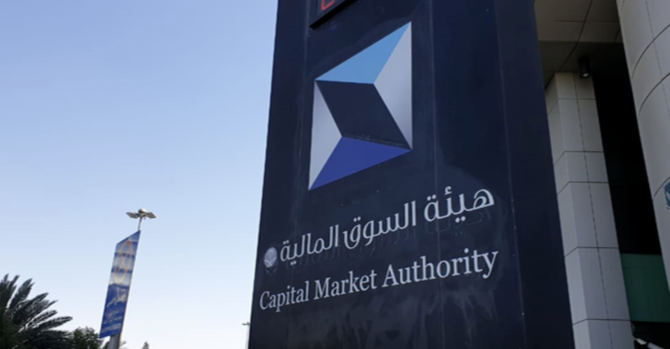
RIYADH: Saudi Arabia aims to enhance its stock exchange appeal to foreign investors, targeting 17 percent ownership of free float shares by 2024, a new report has revealed.
According to the 2023 Financial Sector Development Program document, the Saudi Capital Market Authority plans to boost assets under management to 29.4 percent of gross domestic product by 2024 by increasing the investment environment and attracting more investors.
The report, published annually, highlights the achievements in the financial sector, particularly the Kingdom’s ongoing progress in competitiveness indicators related to the capital market, as stated by Mohammed Al-Jadaan, minister of finance and chairman of the FSDP.
Commenting on the development of the financial sector, Al-Jadaan emphasized the importance of innovation and investment in talent and technology.
“We have placed innovation and investment in both talent and technology at the top of our priorities, because we recognize the importance of building a dynamic financial environment that allows companies — especially startups — to flourish and succeed,” the minister stated.
In line with its commitment to facilitating financing in the capital market, the CMA also plans to accelerate the pace of listings by welcoming 24 new companies in 2024.
Moreover, there will be a focus on supporting the development of new and promising sectors, with a target of having micro and small enterprises account for 45 percent of total listings.
Another area of emphasis is the deepening of the sukuk and debt instruments market, with the goal of increasing the debt-to-GDP ratio to 22.1 percent by the end of 2024. These measures aim to provide diverse financing options for companies and further stimulate economic growth.
“The capital market ecosystem continued its efforts to contribute to developing the financial sector and achieving the Saudi Vision 2030,” stated Mohammed El-Kuwaiz, chairman of the CMA.
“By approving rules for foreign investment in securities and streamlining regulatory procedures, we have witnessed a significant increase in foreign investments in the capital market, reaching SR401 billion ($106.9 billion),” El-Kuwaiz added.
The Saudi Central Bank also reaffirmed its commitment to adhering to international standards and best practices to enhance the strength and stability of the financial sector.
Initiatives such as developing digital solutions for supervising the financial sector and enabling local and international FinTechs demonstrate the Kingdom’s dedication to embracing technological advancements.
Furthermore, the Financial Academy unveiled its new strategy for 2024-2026, focusing on enhancing human capabilities in the financial sector through training programs and professional certifications.
The academy aims to increase the number of trainees and improve the quality of its services to meet the evolving needs of the industry.
The 2023 FSDP report highlighted significant progress across sectors like fintech and digital banking.
The Kingdom saw a surge in fintech companies, surpassing 2023 targets with 216 in operation and launching two digital banks.
Saudi Arabia claimed the top spot in the Corporate Boards Index among G20 nations and secured second place in various indices. Foreign companies relocated headquarters to the Kingdom, deepening the capital market.
Moody’s, Fitch, and S&P Global Ratings revised Saudi Arabia’s outlook to “Positive” and affirmed its “A1” and “A+” credit ratings, citing fiscal policy development, economic reforms, and structural improvements.
Saudi Arabia led venture investments in the Middle East & North Africa, securing 52 percent of total investments in 2023, and allocated SR10 billion to support small and medium enterprises across economic activities and regions in the first half of the year.
ACWA Power signs $1.51bn senior debt financing agreement for Qassim 1 Power Plant
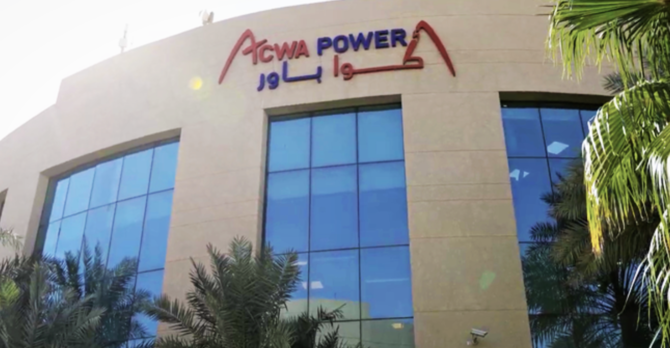
RIYADH: Saudi utility firm ACWA Power has signed a senior debt financing agreement for the Qassim 1 Combined Cycle Power Plant for SR5.69 billion ($1.51 billion).
The deal, signed through Qudra One for Electricity Co., will extend 28 years, according to ACWA Power’s statement to Tadawul.
The senior debt was financed by a combination of international and local commercial lenders, including Standard Chartered Bank, Bank of China, Riyad Bank, as well as Saudi National Bank, Alinma Bank, Saudi Investment Bank, and Saudi Awwal Bank.
The plant capacity is 1,800 megawatts in Qassim.
Moreover, ACWA Power announced in a separate statement that it signed an additional senior debt financing deal for the Taiba 1 Combined Cycle Gas Turbine with a capacity of 1,800 MW in Madinah.
The deal was also made through Taiba 1 CCGT Project Co. and Sidra One for Electricity Co.
It also has a value of SR5.69 billion with a term of 28 years, and was signed with Standard Chartered Bank, Bank of China, and Riyad Bank, as well as Saudi National Bank, Alinma Bank, Saudi Investment Bank, and Saudi Awwal Bank.
ACWA Power holds a 40 percent stake in Qudra Co. and Sidra One. SNB and Saudi Electricity Co. are related parties in both financing agreements.
These deals are backed by an equity bridge loan, early generation revenue, reserve liquidity, and additional accounts as guarantees.
On April 30, ACWA Power expressed interest in investing $10 billion in Malaysia over the next 10 years to develop renewable energy projects.
According to a report by the Malaysian National News Agency Bernama, ACWA Power will collaborate with Cypark Resources Bhd on the developments.
Malaysian Prime Minister Anwar Ibrahim confirmed this news on his Facebook page following a meeting with ACWA Power Chairman Mohammad Abunayyan on the sidelines of the World Economic Forum in Riyadh.
Ibrahim said that the Saudi firm is prepared to collaborate with strategic partners in Malaysia to develop multiple renewable projects across various states in the nation.
In April, ACWA Power signed a new agreement with SOCAR, the state oil company of Azerbaijan, to accelerate the development of renewable projects in the nation.
“The primary directive of the agreement will be to enhance SOCAR’s carbamide fertilizer facility, striving toward more value-added low-carbon products,” said ACWA Power in a statement at that time.
In the same month, the Saudi-listed firm also signed another deal with the International Renewable Energy Agency to accelerate the adoption of clean energy worldwide.
Under the deal, the utility developer will work closely with IRENA to share crucial insights on infrastructure investment in renewable energy, green hydrogen advancement, solar energy, and the intersection of energy and water.
ACWA Power and IRENA will also investigate avenues to mobilize finance and investment for renewable projects, along with supporting infrastructure for the development, storage, distribution, and transmission of clean energy.


